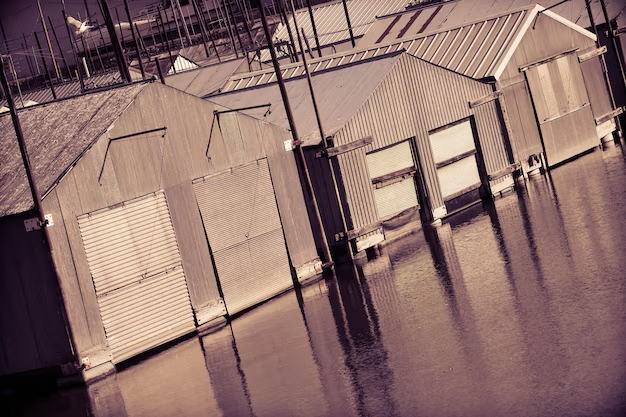Your Guide to Does Renters Insurance Cover Flooded Basements
What You Get:
Free Guide
Free, helpful information about Renters Insurance FAQ and related Does Renters Insurance Cover Flooded Basements topics.
Helpful Information
Get clear and easy-to-understand details about Does Renters Insurance Cover Flooded Basements topics and resources.
Personalized Offers
Answer a few optional questions to receive offers or information related to Renters Insurance FAQ. The survey is optional and not required to access your free guide.
Is Your Apartment Prepared? Unpacking Renters Insurance for Flooded Basements
For many renters, the sanctuary of their home can suddenly become a battleground against surprise elements like flooding. One of the most mysterious aspects of renters insurance lies in its coverage—or lack thereof—of certain water-related damages. Are flooded basements covered under your renters insurance, or is this a peril that leaves tenants to absorb costs independently? Dive with us into the depths of renters insurance policies to decipher what is included, what isn’t, and what steps you can take to safeguard your home and wallet.
Understanding Renters Insurance Basics
What Does Renters Insurance Typically Cover?
Renters insurance is a popular way for tenants to protect themselves against a plethora of unforeseen mishaps. Generally, it offers three main types of coverage:
- Personal Property Coverage: Pays to repair or replace your belongings in cases like theft, fire, or specific disasters.
- Liability Coverage: Assists if someone injures themselves on your property or if you inadvertently cause damage to others’ property.
- Additional Living Expenses (ALE): Covers costs if a covered event makes your home uninhabitable.
However, these benefits often come with exceptions, particularly pertaining to water damage.
The Usual Exemptions
Most renters insurance policies do not encapsulate flooding; this includes natural floods caused by storms or rising waters. Policies are very explicit here because the kind of water damage they do cover is usually from internal incidents, like burst pipes—not external floods.
The Flooding Dilemma: Does Your Policy Include Coverage?
When Renters Insurance Steps In
Your renters insurance might cover water damage in situations like:
- A burst pipe soaks your belongings.
- An overflowing bathtub drenches floors and carpets.
- A leaking appliance such as a dishwasher causes damages.
These instances occur inside the rented property and are typically covered perils.
When Renters Insurance Doesn’t Cover You
Flooded basements, however, are routinely excluded from standard coverage especially if the flooding comes from external elements like hurricanes, heavy rain, or storm surges. Flood damage under these norms requires separate flood insurance, designed specifically to address such natural disasters.
Flood Insurance: The Key to Comprehensive Protection
Do You Need It?
Flood insurance becomes a pivotal addition if you live in an area prone to water events. While federal regulations mandate flood insurance only for properties in designated zones, other homeowners in potentially vulnerable areas should also weigh investing in this protection.
What Does Flood Insurance Cover?
Flood insurance compensates for damage due to rising water, covering:
- Structural damage to your home.
- Replacement of utilities and systems.
- Protection against damage to belongings below ground level, like in basements.
Practical Steps for Renters: Preparing for Water Woes
Evaluating Your Risk
Begin by assessing your geographic vulnerability to floods. Determine if your rental property is in a flood-prone region or zone, which can be ascertained through maps or consultation with local authorities.
Reviewing Your Policy
Comprehensively review your current renters insurance policy. Scrutinize clauses regarding water damage and exclusions. If clarity is elusive, contact your provider to confirm specifics.
Considering Supplemental Policies
If your policy omits flood coverage, contemplate purchasing supplemental flood insurance. Several private insurers offer tailored flood policies, and in some cases, it might be accessible through the National Flood Insurance Program (NFIP).
Home Preparedness Tips
- Elevate Essential Items: Place crucial documents and valuables on higher floors or shelves.
- Utilize Waterproof Containers: Safeguard vital papers and smaller personal items in waterproof containers.
- Install Water Detectors: Water sensors can alert you to leaks before they escalate.
- Regular Maintenance: Routine inspections and clearing gutter systems can preclude minor floods.
Key Takeaways: Navigating Renters Insurance Coverage for Flooded Basements
Here’s a concise summary to keep in mind:
- 🔍 Review Your Policy: Regularly check your renters insurance and understand what’s covered.
- 💧 Consider Risk Factors: If you’re in a flood-prone zone, flood insurance is a wise investment.
- 🛡️ Supplement As Necessary: Evaluate if adding flood insurance to your portfolio safeguards your assets.
- 🛠️ Proactive Prevention: Regular checks and preventive measures help mitigate potential water damage.
Blending these steps ensures your home is not only a haven but a secure one, resilient against nature's unpredictable fury.
The Bottom Line: Achieving Peace of Mind Through Understanding
Flooded basements can spell financial catastrophe for ill-prepared renters. However, with awareness and proactive steps, you can sturdily anchor your assets against water-induced damages. Evaluate where you stand, communicate transparently with your insurer, and adjust your coverage as needed. This preparatory approach will fortify your peace of mind, assured that you've taken necessary precautions to battle against unexpected floods.
What You Get:
Free Renters Insurance FAQ Guide
Free, helpful information about Does Renters Insurance Cover Flooded Basements and related resources.

Helpful Information
Get clear, easy-to-understand details about Does Renters Insurance Cover Flooded Basements topics.

Optional Personalized Offers
Answer a few optional questions to see offers or information related to Renters Insurance FAQ. Participation is not required to get your free guide.


Discover More
- Can a Landlord Require Renters Insurance
- Can I Add People To Usaa Renters Insurance
- Can Renters Insurance Cover Mold
- Can You Cancel a Renters Insurance Policy Early
- Can You Legally Rent a House Without Renters Insurance
- Do Apartments Cancel You Renters Insurance
- Do I Have To Have Renters Insurance
- Do I Need Renters Insurance
- Do Landlords Require Renters Insurance
- Do Renters Insurance Cover Mold
